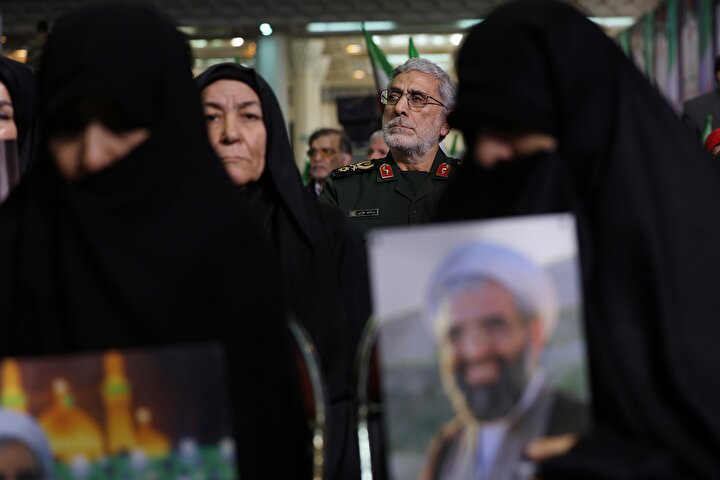
Four instances of democracy violation by national front

The grounds for the formation of the national front
When
in the heat of the oil dispute, the Gess-Golshaian treaty in the
fifteenth Majlis did not reach the outcome desired by the West and the
Pahlavi regime, the kingdom tried to work its desires into the sixteenth
election in order to compose the parliament in a way to pass the
additional treaty. In reaction to the electoral vote-making in that
period of the legislative branch, a group of twenty people headed by
Mosaddeq, while they were against the additional Gess, Golshaian treaty,
they sat in in the Marmar Palace to call for the cancellation of
elections and the appointment of a disinterested government to hold
elections and oversee them. But since their set-in was not taken
seriously, the group formed the Iran national front in Aban 1st, 1328 Iranian calendar.
The statute of the national front was to "form government using the provision of electoral and thought freedom”. They used to strongly stress the democratic norms and asked for observing the constitution of the constitution. Despite that, these people on occasions behaved in a way to violate democratic norms.
Analyzing the records of violation of democracy by the national front
1. Threatening with martial law
The national front and Mossadeq himself opposed the law on martial law especially its Article five which would leave free the government to arrest all people suspected of opposing the government. They used to denounce the law as going against democratic rules. But despite that, when Mosaddeq rose to power he relied on martial law and threatened to implement it despite the fact that he had spoken against it before.
Hossien Makki in page 125 of volume 7 of the years of national uprising writes: Mosaddeq said with a smile "Oh man. All governments have used article five of martial law against their opponents. I too want to use it.” As I heard this, I hit myself in the head hard and said woe to me because I always thought Dr. Mossadeq would always say of the article five of the martial law "The martial law is against all democratic rules and the constitution.” And he would not use it as he had always been against it as a lawmaker.
2. Lack of regard for people’s vote and the Majlis in the 30 Tir tragedy
As the 30 Tir uprising succeeded and Mosaddeq rose to power again, the nation’s demand was that the perpetrators of the incident be punished. Followingly, the Majlis recognized Qaval as the real suspect of the incident and confiscated his assets. Right after people launched demonstrations and called for the prosecution of Qaval and all those involved in the 30 Tir incident. But in a weird act, Mosaddeq took Qavam under his protection in disregard for the request of the Majlis and the people and prevented the justice ministry from pursuing his case. Also, general Vosuq, who was military advisor and commander of the police and another agent in the 30 Tir incident was appointed by Mosaddeq as minister of national defense.
3. Impunity for supporters of Mosaddeq
When Mosaddeq’s request for special authority and the launching of referendum met opposition by the Majlis and ayatollah Kashani in particular, those opposed to referendum decided to hold speech sessions at the home of ayatollah Kashani in Tehran’s Pamenar to show their opposition to referendum. Therefore, the national front which had started attacking the ayatollah beforehand, now decided to spook him and his supporters by invading his house.
Based on what has been written in Mordade Khamoosh, in 10th of Mordad in 1332, the supporters of the national front while shouting "Mosaddeq is the winner” stormed the house of the ayatollah with stones and sticks, whereby some were killed or wounded.
Regardless of what happened on that day, what showed violation of the law was the pursuit of the case in legal venues, which was quite biased and in the direction of condemning those that had opposed the government, where the people that attacked the ayatollah’s house were acquitted. The legal case on the people who attacked was not formed and the case of attack on the ayatollah’s house who was not only a cleric but the speaker of the Majlis and enjoyed impunity was never pursued by related organizations.
4. Calling off the 17th Majlis
The most obvious case of violation of democracy by the national front was launching a referendum to cancel the 17th Majlis. Mosaddeq who had managed to receive special authority by the Majlis for a period of six months once, now had asked for privileges for a period of one year, which met outright opposition in the Majlis. In an undemocratic move in 12 Mordad, 1332, Mosaddeq formed a referendum which cancelled the Majlis. This came despite the fact that there was no line in the constitution to authorize the government to hold referendum to cancel the Majlis.
Thus, the cancellation of the Majlis by Mosaddeq was not only in contradiction to the slogans of the national front, it also deprived Iran of a Majlis. Also, the cancellation of the Majlis benefitted those who launched the coup, in the way that after the coup they set up the Majlis according to their desires which then paved the way for the consortium to be dictated to Iran.
The above mentioned are examples of the violation of democracy by the national front, for which no democratic explanation can be given.


